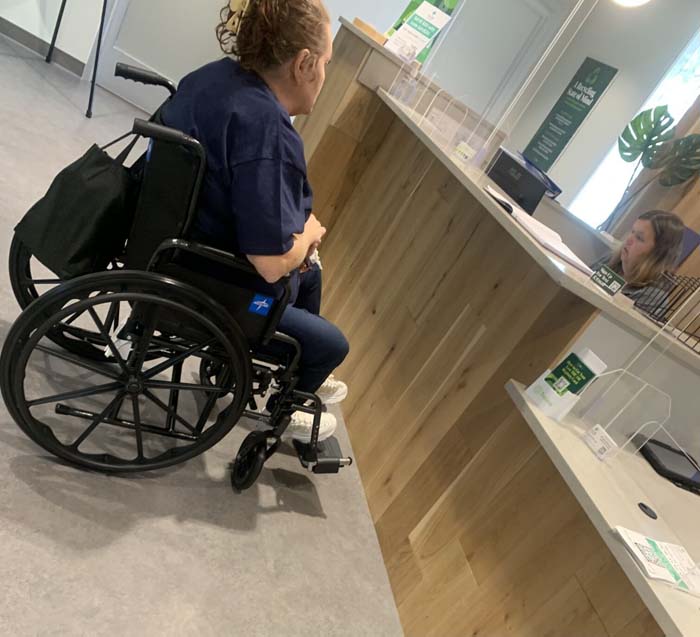Final medical cannabis licenses in Georgia moving forward after two-year court battle
Published 3:51 pm Wednesday, November 15, 2023

- Michelle Alligood and her husband traveled 100 miles from Fitzgerald to a Macon medical marijuana dispensary on its opening day in April.
ATLANTA — After a more than two-year legal battle, the final medical marijuana licenses in Georgia are being issued by the Georgia Access to Medical Cannabis Commission (GMCC).
Though some lawsuits from unsuccessful applicants are ongoing, GMCC Chair Sid Johnson said a recent Georgia Court of Appeals ruling against some of those applicants has enabled the commission to move forward with issuing provisional Class II medical cannabis licenses.
“Implementing a new industry is not easy, but it’s worth it when the work improves the quality of life for thousands of patients in Georgia and for their loved ones who have been there since the beginning,” Johnson said.
The commission’s enabling legislation— the Hope Act, approved by state lawmakers in 2019 — only allowed two Class I licenses and four Class II licenses to be issued. Approximately 70 applications were received.
In July 2021, the GMCC awarded Trulieve GA and Botanical Sciences LLC Class I licenses, allowing growing, cultivating and manufacturing THC oil in an indoor space no more than 100,000 square feet.
However, due to pending lawsuits from Class II applicants, the commission had not issued the four Class II production licenses to the chosen candidates: FFD GA Holdings LLC, TheraTrue Georgia LLC, Natures GA LLC and Treevana Remedy Inc. Class II licenses allow up to 50,000 square feet of indoor space for growing, cultivating and manufacturing low level THC oil.
Lawsuits against the commission alleged unfair and inconsistent scoring by the commission. The Hope Act allows documents related to the commission to be shielded.
Alabama has endured similar challenges in rolling out the medical marijuana industry.
In 2021, Alabama lawmakers legalized medical marijuana; however, when the Alabama Medical Cannabis Commission voted to issue 21 licenses from 90 applicants in June, its process was also stalled due to lawsuits.
GMCC voted Nov. 15 to provisionally issue the Class II licenses in light of the October Court of Appeals ruling to provide more access to medical relief to patients throughout the state.
“The commission has determined that the issuance of these provisional awards furthers the objectives and purposes of the Hope Act, providing patients with meaningful opportunities to locally access low THC oil and products as recommended and approved by their physicians for medical treatment and medical relief,” Johnson said.
He added: “In the preamble of the Hope Act, the Georgia General Assembly made clear that, and I quote, ‘Thousands of Georgians have serious medical conditions that can be improved by the medically approved use of cannabis and that the law should not stand between them and treatment necessary for life and for health.’”
Executive Director Andrew Turnage thanked patients in need in Georgia, who he credits for spearheading the medical cannabis effort.
“Everything that this commission has done is for you, the patients, and I just want to say, for all the sacrifices and dangers and losses that patients have endured to get through this process, we really appreciate that,” Turnage said. “Everything that has happened in this commission has been focused on access for patients and there’s more there’s more battles to come.”
Nearly 20 conditions and diseases qualify for medical cannabis including cancer, seizure disorders, sickle cell, post-traumatic stress disorder and Alzheimer’s disease.
Patients and caregivers of patients who believe they may be eligible should consult with their physician about the possibility of obtaining a Low THC Oil Card, which allows for the purchase of non-smokable forms medical cannabis such as tinctures, topical creams, tincture drops and capsules.
Products are sold at dispensaries throughout the state. Georgia is also the first state to allow medical cannabis products to be sold at pharmacies that apply and are approved.





